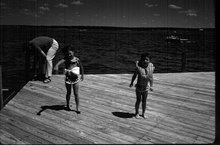
I don't know exactly what a prayer is.
I do know how to pay attention, how to fall down
into the grass, how to kneel down in the grass,
how to be idle and blessed, how to stroll through the fields,
which is what I have been doing all day.
Tell me, what else should I have done?
Doesn't everything die at last, and too soon?
Tell me, what is it you plan to do
with your one wild and precious life?
-from The Summer Day, by Mary Oliver
I came home early today. The achy augurs of a virus or the flu gave cause to take the afternoon and rest. I boarded the No. 3 west of campus and it was afire with its singular cross-section of humanity--every range of income and disability--including the older woman with Down’s syndrome whom I would really like to get to know some day--she seems so affable and reminds me of my great aunt. She scrunches her face and re-arranges her large glasses, and will lean far out in to the aisle to get a better look at someone. Today it was me, sitting in the very back of the bus, thinking of her, but not looking, and she contorted her small frame until she struck an almost impossible angle over the aisle to adjust and readjust at me, her eyes growing alternately huge and normal with each nudge of the frames.
Across from her sat an enormous African-American man in his mid-twenties, who I have often seen on the bus. He usually has headphones on and gesticulates wildly, I have assumed, to the music. Once I sat in a row in front and to the right of his seat where he flung his long arms with such force and vigor that my hair was repeatedly tossed in the wind of his motion. It was an odd tenderness of restraint. He could have knocked my head right off the shoulders with so much force, but he came just so close, and I relaxed and wondered at what whirled in his wild mind, and felt sad that I would never know.
Then there was the man in the wheel chair. He was a middle-aged Latino and every once in a while lifted his black-gloved hand with the fingers cut off to trace letters and invisible words on the glass and ghostlike geometric shapes. What wacky, private worlds we are all confined within. It would be in authentic to say I love humanity, because at times, maybe most times, I sorely resent it. But it would be dishonest to deny that sometimes my heart surges with inexpressible love for my certain fellow humans. Inexpressible is problematic--there is no reason why I could not express what I feel, or do something that would offer some solace or comfort. Rather, and I don’t know why, I hold them close, the way you would a fragile, powdery moth.



